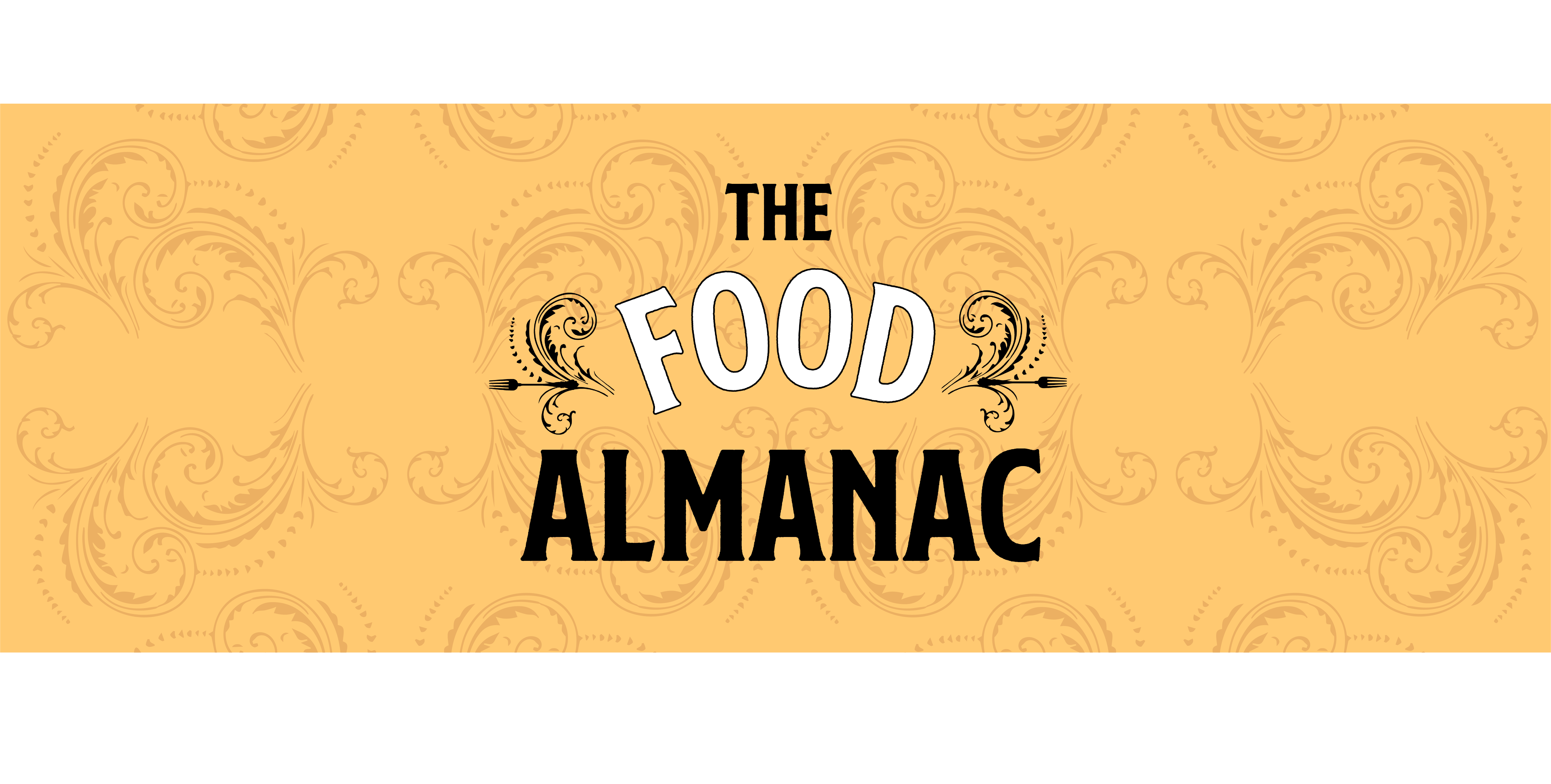September 25
Turtle soup
Aerosol Cheese. Pigeon Pea. Reservations. Battle of Champagne. Superdome
Days Until. . .
Halloween... 36
Po-Boy Festival,..52
Deft Dining Rule #14
Calling to cancel a reservation at the exact time you weresupposed to be there is viewed by restaurateurs as almost asthoughtless as not showing up at all.
Gourmet Gazetteer
Cherry, North Carolina is about fifty miles from the Atlantic coast, on the southern shore of Albemarle Sound. It's a small farming community at the intersection of Cherry Road and Old Cherry Road. The main crop seems to be tobacco. It's so rural that the nearest restaurant is eleven miles away in Columbia, where one finds the Scuppernong Mill House. That's named for the native American sweet wine, made from muscadine grapes.
Edible Dictionary
pigeon pea, n.--Among the most ancient of cultivated foods, a small bean grown and eaten extensively in India, northern Africa, and the Caribbean. The beans are round and slightly flattened, about a quarter of an inch across. They're usually a mottled tan color, but are sometimes used in their green form. The plant that produces pigeon peas is a legume, but gets bushy, producing the beans for as many as four years. It fixes nitrogen in the soil and grows well in arid areas, so it's a godsend to farmers in poor environments. It's high in protein, and a nutritious food. Pigeon peas are most common in America through the Caribbean connection. Rice with pigeon peas is a very popular dish in Puerto Rico and other Caribbean islands. Pigeon peas are sometimes called Congo beans in the American South.
Annals Of Stadium Eating
After being closed for over a year to repair damage caused by Hurricane Katrina and the people who evacuated inside, the Louisiana Superdome reopened today in 2006. And another opportunity to institute the vending of edible food in the big bowl was lost. I hear that a new company is making strides in there, but I have not investigated the affair.
Annals Of American Leisure
Today in 1926, Henry Ford announced that the workers in his plant would begin working a five-day week of eight-hour days. That event is often noted as the beginning of the consumer economy in America. Many firms followed suit. Workers who'd previously had little free time before suddenly had not only leisure time but some money to spend on it. One of the things they bought was Ford automobiles. They also spent some of it in restaurants. It's no surprise that the next decade and a half was a time of great expansion for the restaurant business in New Orleans and elsewhere.
Wine In War
The Second Battle of Champagne began today in 1915. The French attacked the German-occupied wine country and fought for a month and a half. It resulted in a tremendous, useless loss of men and machinery of the kind for which World War I was infamous. The French wound up losing all the ground they gained shortly after.
Food In Science
Today in 1974, a report came out identifying Freon, then used as a propellant in aerosol cans, as responsible for much depletion of the atmosphere's ozone layers. A movement to stop using the stuff for that purpose began. It gave us all a reason--as if taste weren't already enough--to stop eating aerosol cheese, whipped cream, and other foods we'd be better off making ourselves. Good news: in recent years, the ozone hole over Antarctica has diminished in size, which means that the banning of CFCs has helped.
Food Namesakes
George Salmon, an Irish mathematician whose main work involved surfaces, was born today in 1919.
Words To Eat By
"[It was] a soup so thick you could shake its hand and stroll with it before dinner."--Robert Crawford, British writer, who may have been writing about New Orleans turtle soup.
Words To Drink By
"Whenever someone asks me If I want water with my Scotch, I say, “I'm thirsty, not dirty.--Joe E. Lewis, abrasive stand-up comedian of the 1950s and 1960s."

